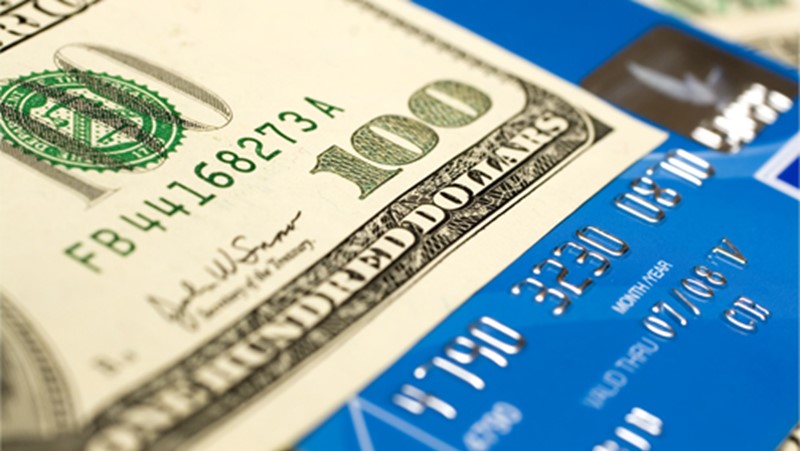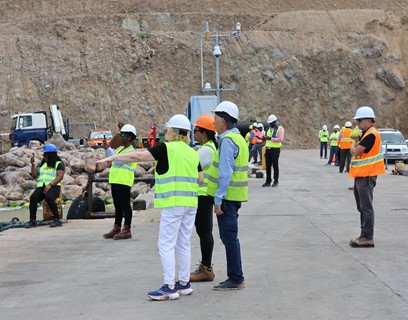
Six years after the Lehman disaster, the industrialized world is suffering from Japan Syndrome. Growth is minimal, another crash may be brewing and the gulf between rich and poor continues to widen. Can the global economy reinvent itself?
A new buzzword is circulating in the world's convention centers and auditoriums. It can be heard at the World Economic Forum in Davos, Switzerland, and at the annual meeting of the International Monetary Fund. Bankers sprinkle it into the presentations; politicians use it leave an impression on discussion panels.
The buzzword is "inclusion" and it refers to a trait that Western industrialized nations seem to be on the verge of losing: the ability to allow as many layers of society as possible to benefit from economic advancement and participate in political life.
The term is now even being used at meetings of a more exclusive character, as was the case in London in May. Some 250 wealthy and extremely wealthy individuals, from Google Chairman Eric Schmidt to Unilever CEO Paul Polman, gathered in a venerable castle on the Thames River to lament the fact that in today's capitalism, there is too little left over for the lower income classes. Former US President Bill Clinton found fault with the "uneven distribution of opportunity," while IMF Managing Director Christine Lagarde was critical of the numerous financial scandals. The hostess of the meeting, investor and bank heir Lynn Forester de Rothschild, said she was concerned about social cohesion, noting that citizens had "lost confidence in their governments."
It isn't necessary, of course, to attend the London conference on "inclusive capitalism" to realize that industrialized countries have a problem. When the Berlin Wall came down 25 years ago, the West's liberal economic and social order seemed on the verge of an unstoppable march of triumph. Communism had failed, politicians worldwide were singing the praises of deregulated markets and US political scientist Francis Fukuyama was invoking the "end of history."
Today, no one talks anymore about the beneficial effects of unimpeded capital movement. Today's issue is "secular stagnation," as former US Treasury Secretary Larry Summers puts it. The American economy isn't growing even half as quickly as did in the 1990s. Japan has become the sick man of Asia. And Europe is sinking into a recession that has begun to slow down the German export machine and threaten prosperity.
Capitalism in the 21st century is a capitalism of uncertainty, as became evident once again last week. All it took were a few disappointing US trade figures and suddenly markets plunged worldwide, from the American bond market to crude oil trading. It seemed only fitting that the turbulence also affected the bonds of the country that has long been seen as an indicator of jitters: Greece. The financial papers called it a "flash crash."
Running Out of Ammunition
Politicians and business leaders everywhere are now calling for new growth initiatives, but the governments' arsenals are empty. The billions spent on economic stimulus packages following the financial crisis have created mountains of debt in most industrialized countries and they now lack funds for new spending programs.
Central banks are also running out of ammunition. They have pushed interest rates close to zero and have spent hundreds of billions to buy government bonds. Yet the vast amounts of money they are pumping into the financial sector isn't making its way into the economy.
Be it in Japan, Europe or the United States, companies are hardly investing in new machinery or factories anymore. Instead, prices are exploding on the global stock, real estate and bond markets, a dangerous boom driven by cheap money, not by sustainable growth. Experts with the Bank for International Settlements have already identified "worrisome signs" of an impending crash in many areas. In addition to creating new risks, the West's crisis policy is also exacerbating conflicts in the industrialized nations themselves. While workers' wages are stagnating and traditional savings accounts are yielding almost nothing, the wealthier classes -- those that derive most of their income by allowing their money to work for them -- are profiting handsomely.
According to the latest Global Wealth Report by the Boston Consulting Group, worldwide private wealth grew by about 15 percent last year, almost twice as fast as in the 12 months previous.
The data expose a dangerous malfunction in capitalism's engine room. Banks, mutual funds and investment firms used to ensure that citizens' savings were transformed into technical advances, growth and new jobs. Today they organize the redistribution of social wealth from the bottom to the top. The middle class has also been negatively affected: For years, many average earners have seen their prosperity shrinking instead of growing.
Harvard economist Larry Katz rails that US society has come to resemble a deformed and unstable apartment building: The penthouse at the top is getting bigger and bigger, the lower levels are overcrowded, the middle levels are full of empty apartments and the elevator has stopped working.
'Wider and Wider'
It's no wonder, then, that people can no longer get much out of the system. According to polls by the Allensbach Institute, only one in five Germans believes economic conditions in Germany are "fair." Almost 90 percent feel that the gap between rich and poor is "getting wider and wider."
In this sense, the crisis of capitalism has turned into a crisis of democracy. Many feel that their countries are no longer being governed by parliaments and legislatures, but by bank lobbyists, which apply the logic of suicide bombers to secure their privileges: Either they are rescued or they drag the entire sector to its death.
It isn't surprising that this situation reinforces the arguments of leftist economists like distribution critic Thomas Piketty. But even market liberals have begun using terms like the "one-percent society" and "plutocracy." The chief commentator of the Financial Times, Martin Wolf, calls the unleashing of the capital markets a "pact with the devil."
They aren't alone. Even the system's insiders are filled with doubt. There is the bank analyst in New York who has become exasperated with banks; the business owner in Switzerland who is calling for higher taxes; the conservative Washington politician who has lost faith in the conservatives; and the private banker in Frankfurt who is at odds with Europe's supreme monetary authority.
They all convey a deep sense of unease, and some even show a touch of rebellion.
If there is a rock star among global bank analysts, it's Mike Mayo. The wiry financial expert loves loud ties and tightly cut suits, he can do 35 pull-ups at a time, and he likes it when people call him the "CEO killer."
The weapons Mayo takes into battle are neatly lined up in his small office on the 15th floor of a New York skyscraper: number-heavy studies about the US banking industry, some as thick as a shoebox and often so revealing that they have enraged industry giants like former Citigroup CEO Sandy Weill, or Stan O'Neal in his days as the head of Merrill Lynch. Words of praise from Mayo are met with cheers on the exchanges, but when he says sell, it can send prices tumbling.
Mayo isn't interested in a particular sector but rather the core of the Western economic system. Karl Marx called banks "the most artificial and most developed product turned out by the capitalist mode of production." For Austrian economist Joseph Schumpeter, they were guarantors of progress, which he described as "creative destruction."
But financial institutions haven't performed this function in a long time. Before the financial crisis, they were the drivers of the untenable expansion of debt that caused the crash. Now, focused as they are on repairing the damage done, they are inhibiting the recovery. The amount of credit ought to be "six times faster than it has been," says Mayo. "Banks now aren't the engines of growth anymore."
Mayo's words reflect the experience of his 25 years in the industry, a career that sometimes sounds like a plot thought up by John Grisham: the young hero faces off against a mafia-like system.
He was in his late 20s when he arrived on Wall Street, a place he saw as symbolic of both the economic and the moral superiority of capitalism. "I always had this impression," says Mayo, "that the head of a bank would be the most ethical person and upstanding citizen possible."
But when Mayo, a lending expert, worked for well-known players like UBS and Prudential Securities, he quickly learned that the glittering facades of the American financial industry concealed an abyss of lies and corruption. Mayo met people who recommended buying shares in technology companies in which they themselves held stakes. He saw how top executives diverted funds into their own pockets during mergers. And he met a bank director who only merged his bank with a lender in Florida because he liked boating in the Keys.
What bothered Mayo most of all was that his employers penalized him for doing his job: writing critical analyses of banks. He lost his job at Lehman Brothers because he had downgraded a financial institution with which the Lehman investment department wanted to do business. Credit Suisse fired him because he recommended selling most US bank stocks.
Only when the real estate bubble burst did the industry remember the defiant banking analyst, who already saw the approaching disaster even as then-Deutsche Bank CEO Josef Ackermann issued a yield projection of 25 percent. Fortune called him "one of eight people who saw the crisis coming." The US Congress called on him to testify about the crisis.
Today Mayo writes his analyses for the Asian brokerage group CLSA and they still read like reports from a crisis zone. Central banks have kept lenders alive with low interest rates, and governments have forced them to take up additional capital and comply with thousands of pages of new regulations. Nevertheless, Mayo is convinced that "the incentives that drove the problems … are still in place today."
Top bank executives are once again making as much as they did before the crisis, even though the government had to bail out a large share of banks. The biggest major banks did not shrink, as was intended, but instead have become even larger.
Incalculable Risks
New accounting rules were passed, but financial managers can still hide the value of their receivables and collateral behind nebulous terms like "transaction" or "customer order." Bank balance sheets, British central banker Andrew Haldane said caustically, are still "the blackest of boxes."
Before the crash, investment banks gambled with derivatives known by acronyms like CDO and CDS. Today Wall Street institutions try to get the upper hand with high-frequency trading, with their Dark Pools and millisecond algorithms. Regulators fear that high-frequency trading, also known as flash trading, could create incalculable risks for the global financial system.
When analyst Mayo thinks about the modern banking world, he imagines a character in the Roman Polanski film "Chinatown," California detective Jake Gittes. The man solves one corruption case after another, and yet the crime level in Los Angeles doesn't go down. "Why is that?" he finally asks another character, who merely replies: "Forget it, Jake. It's Chinatown."
It's the same with the banking industry, says the analyst. Individual institutions aren't the problem, he explains. The problem is the system. "The banks are Chinatown," says Mayo, "and it is still the situation today."


